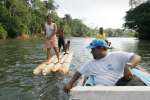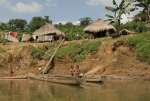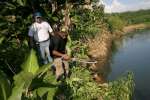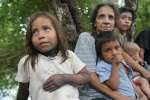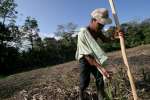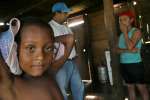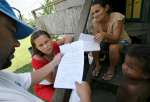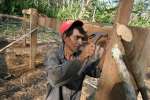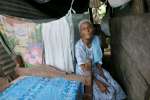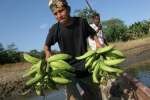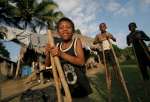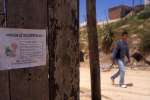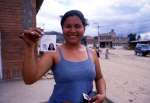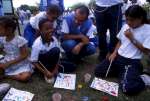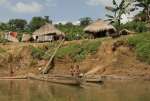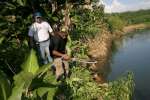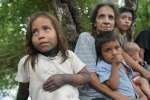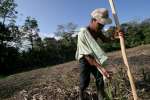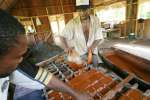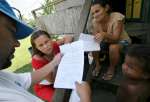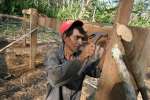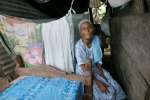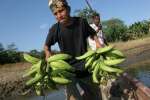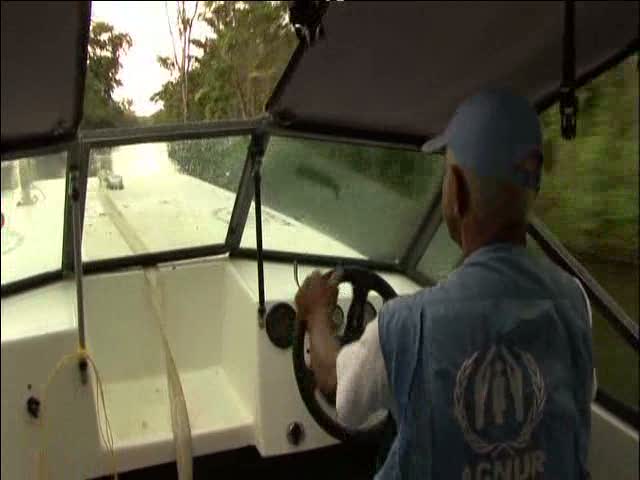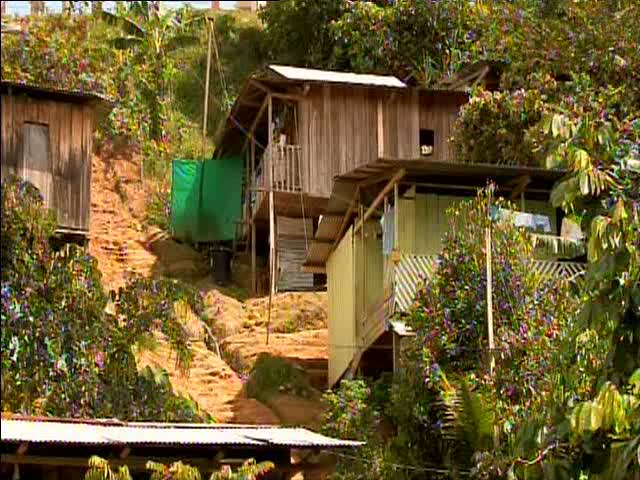Young Colombian gets first refugee ID card in Venezuelan border state
News Stories, 21 February 2007
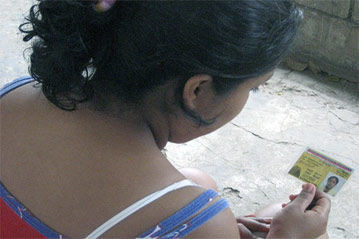
GUASDUALITO, Venezuela, February 21 (UNHCR) – Trying to go to school almost landed Mara* in jail until she got her refugee card in Venezuela. "I cried so much back then. They would not let me through at the checkpoints to go to college. The only safe way was with the official school bus," the 21-year-old Colombian recalls.
That all changed last year, when Mara became the first person to be issued with a refugee identity (ID) card in the Venezuelan state of Apure, near the Colombian border. With 2,800 requests, Apure has the highest number of asylum seekers of any state in Venezuela.
Yet it is also the region where local authorities have been the slowest to respond to applications. To date, just 20 asylum seekers in the entire state have been recognised as refugees and only Mara has received an ID card. Local officials say they are hampered by a lack of resources.
The registered numbers are only the tip of the iceberg. An estimated 200,000 Colombians have fled to Venezuela in the past eight years. Daunted by the prospect of having to prove they are not illegal immigrants and still scared of the violence back home, most of them keep a low profile and remain undocumented.
Mara left Colombia in December 2004. Running for her life, she crossed the Arauca River to join the rest of her family some three years after they had found refuge in Venezuela.
She asked for asylum and five months later was granted refugee status. After another few months, she received the small yellow refugee ID card that has changed her life. She can now move around without fear and can plan her future with full access to education, something other Colombians cannot depend on.
"This document is extremely important," says José Sieber, UNHCR field officer in Apure. "Colombian children can attend school without it, but when the time comes to graduate or move to another school, they can't, because they don't have any proper documentation in Venezuela," he explains.
This is the problem Mara's four brothers and sisters face. While she has received refugee status, the rest of her family is still waiting for an answer to their asylum request, submitted one year after their arrival in 2001.
Although Venezuelan law states that asylum claims should be settled within three months, it can take years in practice before a decision is reached. In the meantime, Mara's family relies on temporary documents that barely protect them from deportation and which they must get stamped every month.
"You are on a bus, a soldier comes in, asks for your ID and as soon as you show your little paper, he asks you to get off. Then he goes to his superior, and until his superior says yes, you cannot go on. Sometimes the bus waits for you, sometimes it doesn't," says Mara's younger brother Ernesto.
The little paper Ernesto refers to is the official document certifying that he has requested asylum. It means that he is protected by national and international laws but, to all intents and purposes, it has little practical value for Ernesto.
Yet he and his family are among the lucky ones. Many other asylum seekers have not received any form of documentation at all. And while the local communities welcome Colombians, the environment in Apure is harsh.
The majority of the population lives in poor rural settlements with few or no public services. The temperatures are unbearably high and the river, while it helps temper the heat, overflows during the rainy season. The road to the city is overrun with army and police checkpoints and, without documentation, many asylum seekers are too intimidated to leave the border zone.
Ernesto's spirits lifted when his sister became the first refugee in the entire state of Apure to receive an ID card. But as time passes and the rest of the family remains in limbo, desperation is setting in. "We might stay here 15 or 20 years, and they are not going to solve our case," he says.
Some 8,000 people, the vast majority of them Colombians, are waiting for a decision on their asylum request in Venezuela. Tens of thousands of others have never even registered. In all, there are some 720 recognised refugees in the country.
* Name changed for protection reasons
By Ligimat Pérez in Guasdualito, Venezuela




